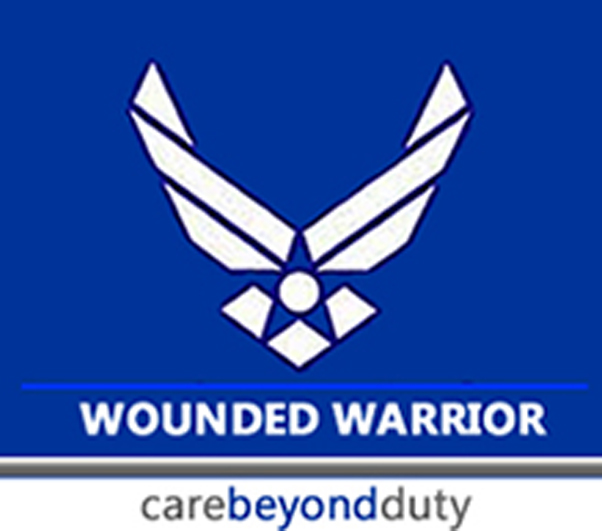Imagine someone holds a gun to your head, and then they pull the trigger.
Tech. Sgt. Trevor Brewer, with 72nd Security Forces Squadron at Tinker Air Force Base, doesn’t have to imagine it. He lived it.
On March 2, 2011, a terrorist boarded the bus Brewer was on and placed a gun to his head. He is alive because the gun malfunctioned, but he is left with invisible wounds and copes with post-traumatic stress disorder every day.
“There are days that go by now that I don’t think about it,” said Brewer. “But there are days when it is all I think about. It comes and goes.”
Then-Staff Sgt. Brewer was tasked to deploy to Kandahar, Afghanistan. He and 14 other members of his team traveled from RAF Lakenheath in England to Frankfurt International Airport where they boarded a bus to Ramstein, Germany.
After a crew member stepped off the bus for a moment, Brewer heard a popping noise similar to a car running over a rock, but he didn’t think anything of it at the time. The next thing he heard was someone coming on the bus. Thinking it was the crew member returning, Brewer looked up to find a man he had never seen before, wearing a hood over his long black hair. The man raised his arm holding a pistol.
“The gunman yelled, ‘Allahu Akbar’ and shot the bus driver in the head, killing him instantly,” said Brewer. “It didn’t register. I have never seen anything like that in my life and I didn’t think it was real.”
Gunshot after gunshot rang out.
“I could smell the gun powder, and that gave gravity to it all,” Brewer said. “I put my head down. I was waiting for my turn to die.”
The gunshots stopped. Thinking it was over, Brewer sat up and drew the attention of the gunman who was standing nearby. The two locked eyes.
“I saw pure hate in those eyes,” said Brewer.
The man raised the gun to Brewer’s head and again shouted, ‘Allahu Akbar.’ He pulled the trigger. The gun jammed. He pulled the trigger a second time and the gun jammed again.
Then, the gunman turned and fled. Brewer, a trained security forces professional, jumped up to follow him.
Slipping on the blood on the floor, Brewer regained his footing and chased the gunman through the airport yelling for help. He caught up to the gunman, who now had a knife in hand.
“We locked eyes again,” said Brewer. “I tell everyone that the first time we locked eyes I saw hate, but this time I saw fear. I could tell he was a coward.”
German police detained the gunman. Brewer returned to the bus to check on his team.
Two people — Airman 1st Class Zachary Cuddeback and Senior Airman Nicholas Alden — were killed in the attack and two others were injured.
“Airman Cuddeback wasn’t supposed to be on the run that day, but he took it to cover someone else who had an appointment,” Brewer said.
Seeking help
Brewer said he has been in and out of counseling for the past eight years. He is helping others, but he still struggles.
“It is something I’ll deal with the rest of my life,” he said. “I wasn’t thinking of the stigma of asking for help. I would sit at my computer and just stare because the incident was running through my head. When I was at home, I was fearful someone would come finish the job. I would go room to room to clear each room, and the smallest noises would set me off. My heart was constantly racing wherever I was.”
A few weeks after the attack, Brewer couldn’t get it out of his head. With tears in his eyes, he went to his supervisor and said he needed to talk to someone.
“He put me in his car and took me to Mental Health and I underwent counseling for about a year,” said Brewer. “It definitely helped. I don’t know where I’d be today if I didn’t go talk to someone.”
Brewer likes to remind people that the majority of those who seek help return to duty.
“I’d rather someone get the help now that they need and have to take off the uniform and be OK, than wait all those years, take off the uniform and not be OK,” said Brewer. “The sooner you seek help, the better you’ll be over time. If you suppress it over those years, it would affect your career way more than if you went to Mental Health. I’ve seen so many careers ruined because they wouldn’t get help.”
Today Brewer is heavily involved serving as an ambassador for the Wounded Warrior Program.
“The best support is the Wounded Warrior Program,” said Brewer. “I can relate with them in a way I can’t with anyone else. The staff and other warriors are the biggest support network I have. These people have gone through a similar thing.”
Family also keeps Brewer focused. His son, Keegan Zachary — named after Airman Cuddeback — keeps him grounded.
“Also, my parents are a huge support,” he said. “They said God has a plan for me and that is why I’m still here. This incident definitely tested my faith. I was torn with why God let this happen, but it gave me clarity and I have to live my best life for those guys.”
A creative outlet often helps PTSD sufferers cope with the day-to-day. Brewer has many outlets, with music and sports topping the list.
“I’ve played the violin since I was a child,” he said. “I love music and I like to sing karaoke. I found a love for sports like archery, air pistol competitions and seated basketball.”
Brewer is focused on getting his life back together. He is still working and recently learned he was selected for promotion to master sergeant after his first time testing.








